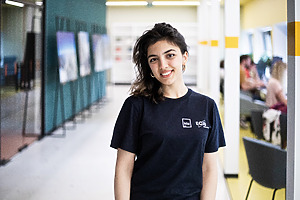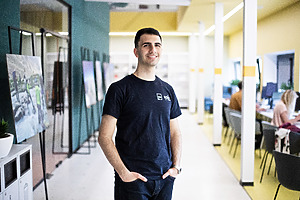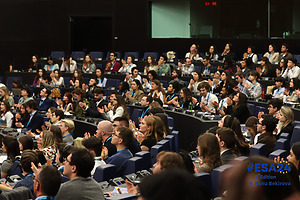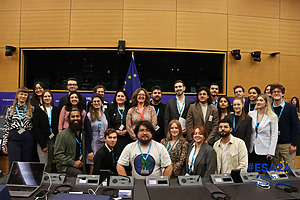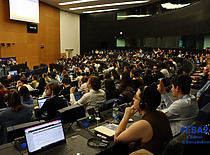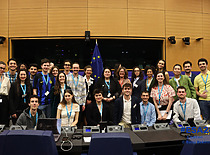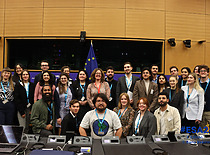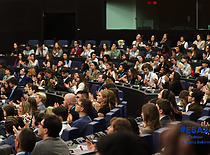How can we ensure that higher education institutions offer equal opportunities for everyone? How use the possibilities offered by Artificial Intelligence (AI) to address the challenges it poses? In the run-up to the European Parliament elections, students from different European universities tried to find solutions to these and nine other challenges at the European Student Assembly (ESA).
“Each student had the opportunity to choose three priority topics, and then one topic was selected for them to work on,” says Mammadova, happy that the topic she worked on was the one she was interested in the most.
European Student Assembly – a model for teamwork
From the end of January to April this year, KTU students worked remotely in groups with students selected from other universities chosen for the Assembly.
Students were also responsible for proposing solutions to the presented challenges, which stakeholders should implement at different decision levels.
According to Gurban: “Although all students had different academic and cultural backgrounds, each of them demonstrated professionalism, the ability to analyse and to think openly. Overall, I have never seen such strong and high-quality teamwork as I experienced at ESA.”
Students shaping Europe’s future
After more than two months of long-distance discussions, the 3rd European Student Assembly took place in Strasbourg on 10–12 April. More than 250 students from 170 different institutions, participating in more than 40 different alliances, gathered at the European Parliament. This meeting aimed to generate a lively debate on topical issues, to finalise policy recommendations for the future of Europe and to advocate these recommendations among stakeholders and decision-makers.
The main objectives of the Student Assembly were to provide a space for European students from different countries, backgrounds, disciplines and levels of study to share their views; to promote student participation in the European University Alliances (EUA); to advocate for deliberative processes as a way to rebuild European democracy and to bridge the gap between citizens and decision-makers; to encourage students to engage in European politics at local, national and European level and to increase their participation in Europe’s democratic processes.
“I hope that at least some of the ideas we have proposed will be incorporated into the EU law. In that case, we will see a real change initiated by us, young motivated students who are trying to make the world a better place. I believe that the ESA project should continue so that even more young voices can be heard in the years to come,” says Shukurov.
The full set of policy recommendations discussed at the Assembly can be found here.


